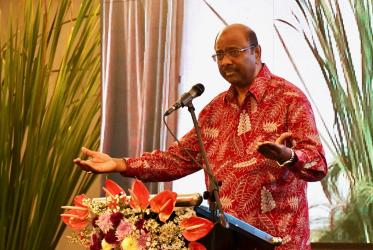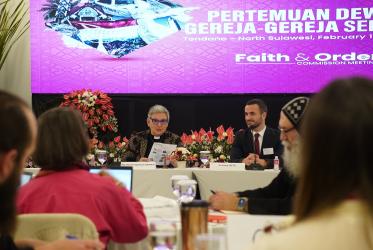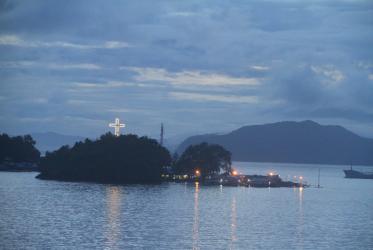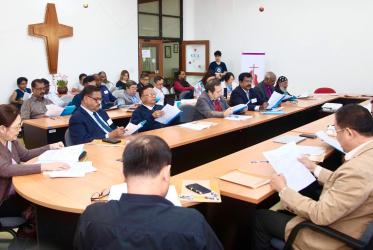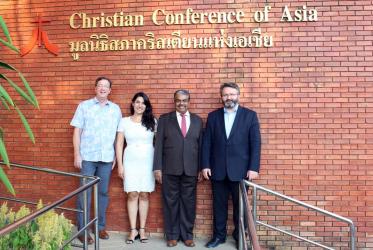Displaying 1 - 20 of 48
WCC Commission on Faith and Order gathers with hope at the heart
03 February 2024
In a COVID-stricken world, “everyone is important”
23 October 2020
New student body at Bossey Ecumenical Institute “a source of joy”
14 September 2020
Bossey alumni from Thailand continue their strong ties
19 August 2020
WCC relaunches Sarah Chakko Scholarship Fund
30 January 2020
The cry of the Papuans in Indonesia
14 November 2019
Conciliar Unity: Whither Vision and Direction?
14 December 2018
